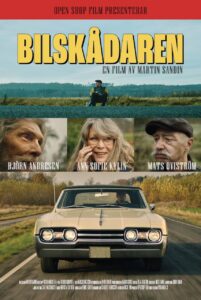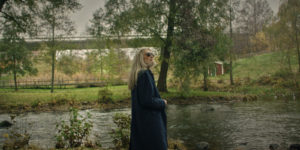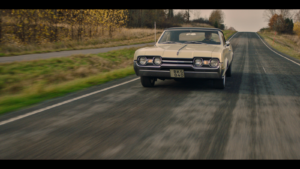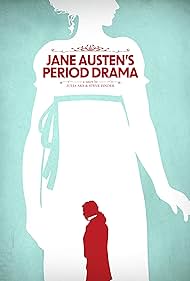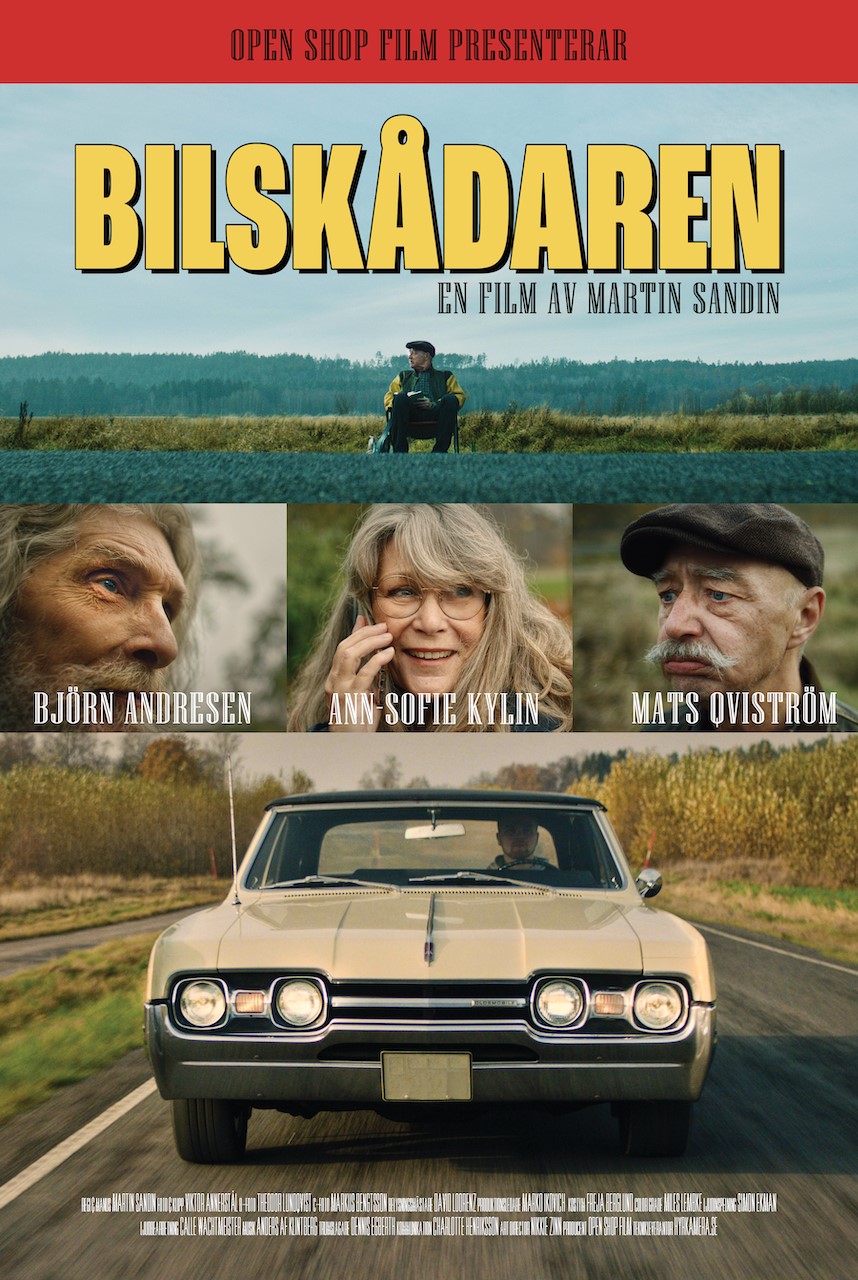
Short Film Review “Bilskadaren (The Car Spotter)”
WATCH THE TRAILER HERE
First, the Recap:
How many times have we heard it said, “Don’t sweat the small stuff”? In the hustle and bustle of everyday life, the busyness we get immersed in can indeed cause us to be so overtly caught up in what we THINK is most important, when in actuality, other, more crucial events are occurring right under our noses that could readily spell disaster. As is the case with so much of this particular type of situation–will you open your eyes in time? For Peo (Mats Qvistrom), the all-encompassing infatuation he has with his primary “work”–a hobby known as “car spotting”–consumes his days as well as offering little time for him to spend with his longsuffering wife Birgitta (Ann-Sofie Kylin). However, when a neighbor, Lennart (Bjorn Andresen), enters the picture, what will it mean for Peo’s relationship–and his seemingly distracting first love?
Next, my Mind:
Cause and effect, an unsteady, slowly building separation, the allure of temptation, the potency of innocent but still conspicuous obsession, and an ignoring of the obvious via a highly preoccupied, inadvertently apathetic mindset all take center stage through this thirteen-and-a-half-minute indie short film from writer/director/producer/editor Martin Sandin that definitively solidifies why being complacent in love and overly focused on a fulfilling but still diverting activity can have a hefty price attached to it. It’s a cautionary tale told from a deeply human perspective and quite honestly bears a large amount of significance in its grander foundational concept, especially in principle, as it relates to a day and age where we as a culture finds ourselves undeniably absorbed in social media and other ultimately mind-numbing things that take us away from what’s truly imperative that we put time and effort into.
In the context presented here, the narrative that sees an older man relishing an admittedly engaging yet utterly time-consuming new hobby and the drastic effect it begins to take on his marriage while he searches for a new “dream find” (see the film to understand), the pacing here allows us to flow smoothly along as the events unfold, giving us a clear, concisely executed, and impactful journey into what it is to get swept away with one passion only to lose sight of another, more pertinent one and the potential consequences that manner of thinking and inaction could have. The film utilizes an almost documentary style in some sequences then a more formal narrative delivery in others, which this critic found to be entertaining and clever, adding a dimension to the tale that worked on all levels. It’s grounded, believable drama, with some humor mixed in as well. Perfectly balanced filmmaking, it touches on our need for contentment, a fresh sense of self and delight, and pursuing “necessary” achievement in it all.
However, as indicated earlier, for all the positiveness these elements might convey upon us in whatever form they take, the film so deftly delves into the opposite end of this spectrum, the inward and outward hunt for gratification, and showcases potently what can be boiling under the surface, even when subtle, that we then completely miss, causing that possibility of loss. The project’s third act wraps it all beautifully, stirringly, and compellingly up, leaving us as the viewer wondering how the plight transpiring will conclude, and whether an aspiration will come to pass. As usual, watch the film to see how it all ends when the film ideally becomes available for public consumption in the future. I state this many a time, but this represents the ongoing strength and persuasive power of indie cinema, and why this critic so staunchly supports the genre and wants to be a part of getting the word out, even if just for any initial awareness-raising purposes, so that more film lovers will venture outside the mainstream and take in wonderful material like this.
This is my first chance to see this set of actors on screen, and I am always pleased to say that there was no disappointment at all, starting with Qvistrom in his role as Peo, a humble, older man who had recently discovered a fantastically simple yet wholly enjoyable new endeavor to chase, “car spotting”. Even as he spends each day settled in his quintessential (albeit we certainly ascertain self-named) spot, Peo finds happiness and connection through it. But, while so engrossed in it, his attentions are heavily weighed down by it, as the toll it is taking on his understanding but lonely wife starts to arise. Soon, it becomes unclear exactly how much realization Peo surmises about the circumstances, and will it be too late to rectify and save that which he should always put in the forefront? It’s another of those understated yet intense performances that speaks so emphatically about the emotional disruption in play, and Qvistrom’s playful and dramatic acting chops effectively get their exercise to just the right magnitudes throughout the film.
Kylin also presents a fantastically, purposefully, muted yet verifiably fervent demeanor through her role here as Peo’s wife Birgitta, a woman so plainly in love with her long-standing spouse yet now finds herself questioning it all upon having to experience a sudden sense of abandonment when Peo’s new hobby “steals” him away from her. Despite all the means she attempts to hint at how it’s affecting her, the pattern of neglect still lingers, and a chance encounter sets her thoughts on prospects she never would have entertained otherwise. For Birgitta, it soon comes down to whether or not she will choose to follow the needs issued forth by her real and perceived notions of solitude or the more established call of her heart. Watching as Kylin guides her character through this volatility with grace and controlled energy is really credible and filled with a relatability that suits the narrative’s intent.
Finally, Andresen (known so often for his role as 14-year-old Tadzio in the 1971 film adaptation of “Death In Venice” as well as being a well-established musician) makes his presence known here through his performance as Lennart, a neighbor of Peo and Birgitta’s who might just have more on his mind than basic friendliness when it comes to her and the personal upheaval she’s experiencing. His calm, naturally and genuinely pleasant attitude assuredly grabs Birgitta’s attention, speaking to what she’s most likely felt in short supply, but again, how he may or may not be able to gain her further affections remains to be seen, and Lennart really ends up being one of those characters you aren’t remotely sure you should sympathize with as well or root against given the happenings being portrayed. This therefore stands as a testament to how Andresen brings the character to life so adeptly as you FEEL this conflict while watching everything emerge. It’s also a study in subdued yet profound emotional weight, which Andresen exudes wonderfully.
So, in total, “Bilskadaren (The Car Spotter)” agilely and with quietly decisive resolve provides both a delightfully wistful yet conclusively relevant, convincingly accessible, contemporary morality tale that channels the joy of finding and partaking in a new ambition while warning us not to forsake that which should always be maintained and treated with utmost adoration and as paramount in our lives–the companionship, connection, and comfort of those who mean the most to us AND who could even end up providing a truer rightness to what we are seeking.
As always, this is all for your consideration and comment. Until next time, thank you for reading!
